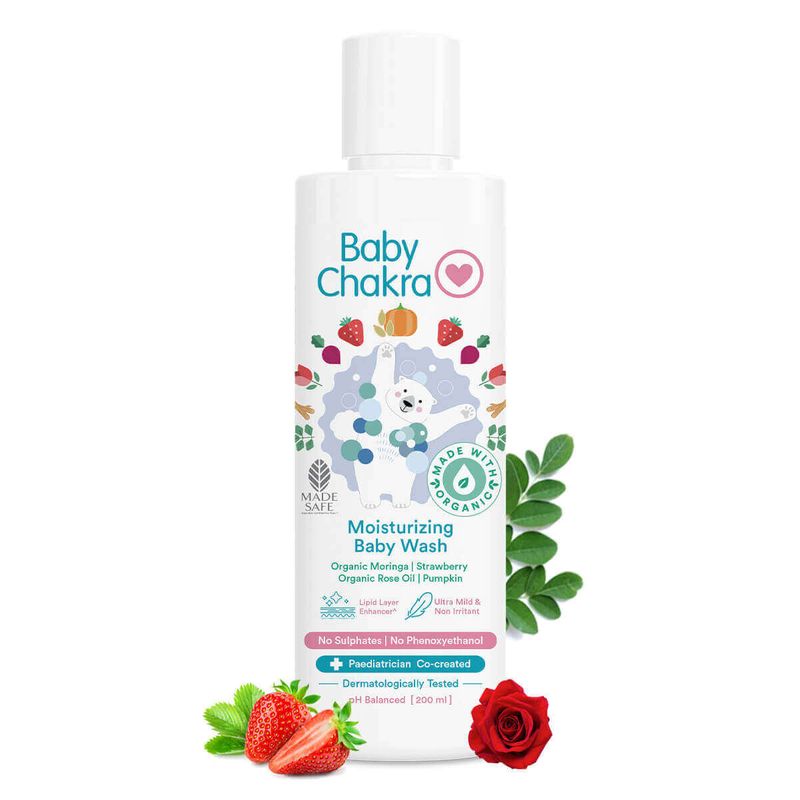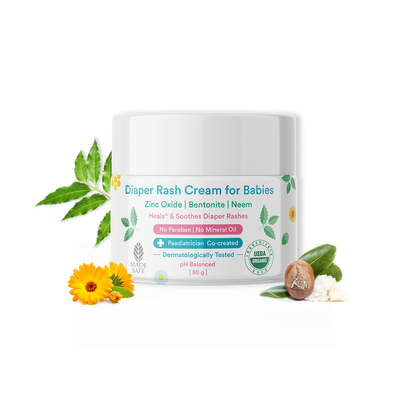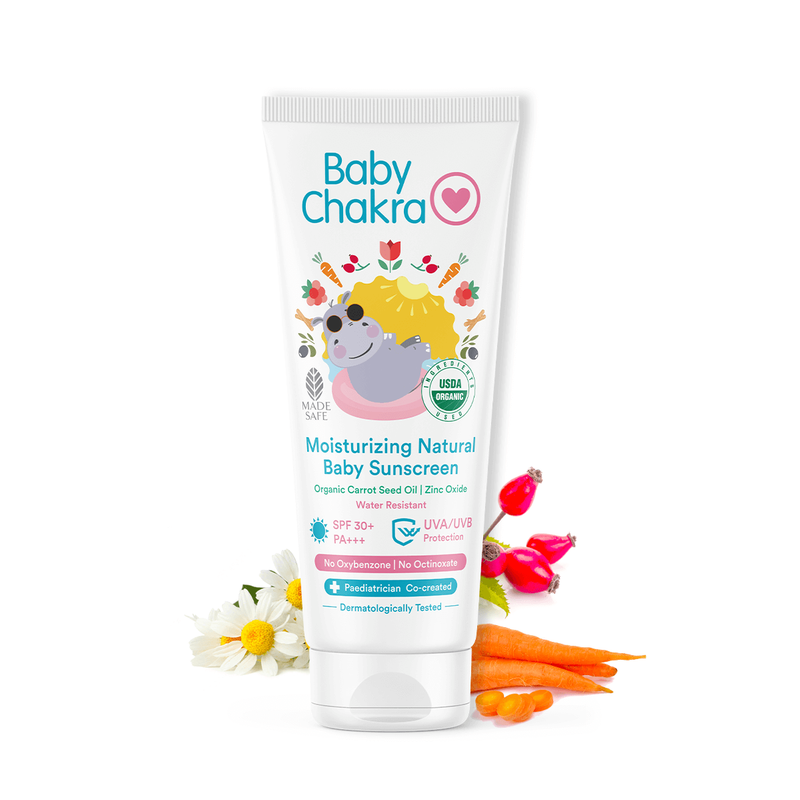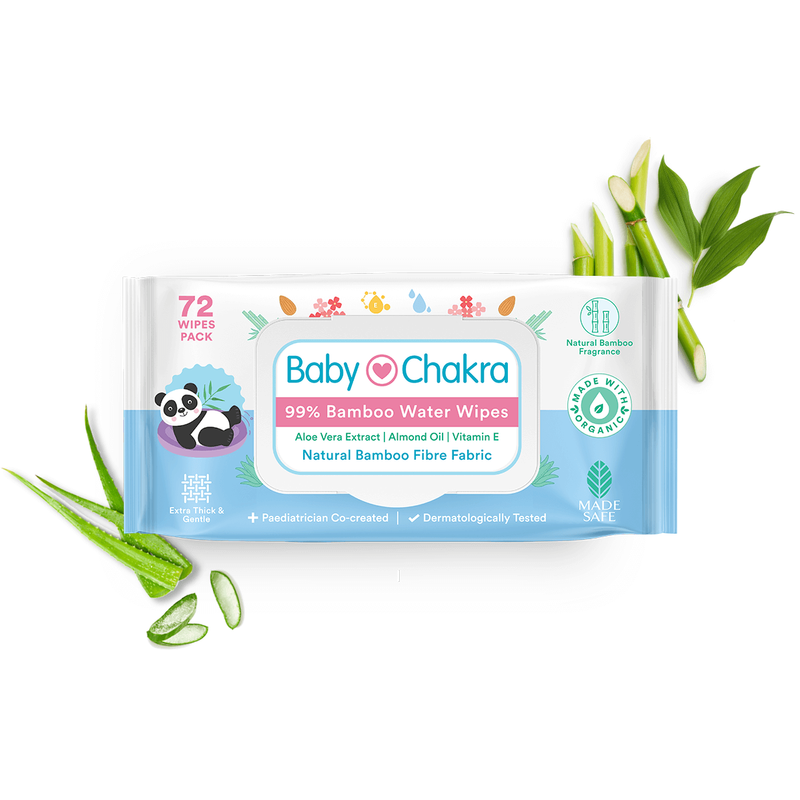
How To Protect A Baby’s Skin Microbiome
29 Mar 2023 | 4 min Read
Manisha Pradhan
Author | 1053 Articles
As a parent, one thing you may not have considered is the importance of your baby’s skin microbiome. The skin microbiome refers to the microorganisms like fungi, bacteria, viruses, and even tiny skin mites that live on the surface of the skin, and it plays a crucial role in maintaining healthy skin.
Around the time a baby turns a year old, their skin microbiome reaches its adult state. That’s why the first year is a crucial development period. A damaged or unbalanced skin microbiome may result in health complications not just in their first year but also later in life.
Here are some tips on how to protect your baby’s skin microbiome and promote healthy skin.
How To Protect A Baby’s Skin Microbiome
Avoid Harsh Chemicals
One of the most important things you can do to protect your baby’s skin microbiome is to avoid using products that contain harsh chemicals. Harsh chemicals can disrupt the delicate balance of the skin microbiome, leading to irritation, dryness, and even infections.
Look for products that are specifically designed for babies and are free of harsh chemicals such as sulfates, parabens, and phthalates.
Use Gentle Cleansers
When it comes to bathing your baby, it’s important to use a gentle cleanser that won’t strip away the natural oils on their skin. Look for cleansers that are pH balanced and contain gentle, natural ingredients such as oatmeal, coconut oil, and chamomile.
Avoid using hot water, as it can be drying to the skin, and limit baths to no more than 10 minutes.
Moisturise Regularly
Keeping your baby’s skin moisturised is key to maintaining a healthy skin barrier and protecting the baby’s skin microbiome. Look for a gentle, fragrance-free moisturiser that is specifically formulated for babies. You may want to check out the BabyChakra Natural Baby Face Cream which is made with natural ingredients and contains no chemicals.
Apply it after bathing and throughout the day as needed, paying extra attention to areas that are prone to dryness such as the face, hands, and feet.
Don’t Overuse Antibiotics
Antibiotics can be lifesaving when used appropriately, but they can also harm the baby’s skin microbiome. Antibiotics kill both good and bad bacteria, which can lead to an imbalance in the skin microbiome and an increased risk of infections.
Avoid overusing antibiotics and talk to your paediatrician about alternative treatments if possible.
Breastfeed if Possible
Breast milk contains a variety of beneficial bacteria that can help to support the development of a healthy skin microbiome. If possible, try to breastfeed your baby for at least the first six months of life.
If breastfeeding isn’t an option, talk to your paediatrician about using a probiotic supplement to support your baby’s skin microbiome.
Choose Natural Fibers
The clothes your baby wears can also have an impact on their skin microbiome. Choose clothing made from natural fibres such as cotton or bamboo, which are more breathable and less likely to trap moisture and heat against the skin.
Avoid synthetic fabrics and tight-fitting clothing, which can increase the risk of skin irritation and infections.
Be Mindful of Diapering
Diapering is another area where you can protect your baby’s skin microbiome. Change your baby’s diaper frequently, and use a gentle, fragrance-free diaper cream to protect against diaper rash.
Avoid wipes that contain alcohol or other harsh chemicals, and opt for a gentle, natural wipe instead.
Limit Sun Exposure
Sun exposure can be damaging to the skin microbiome, especially in young babies whose skin is still developing. If your baby will be spending time outdoors, make sure to dress them in lightweight, breathable clothing that covers their skin, and use a baby-safe sunscreen with an SPF of at least 30.
Protecting your baby’s skin microbiome is essential for maintaining healthy, soft, and supple skin. By avoiding harsh chemicals, using gentle cleansers and moisturizers, breastfeeding if possible, choosing natural fibres, being mindful of diapering, limiting sun exposure, and avoiding the overuse of antibiotics, you can help keep your baby safe and healthy.
You may want to try these natural baby skin care products to protect your baby’s skin microbiome:
Also Read:
Baby’s First Summer: 8 Must-Have Summer Skincare Essentials
Your Baby Care Products Must Not Have Mineral Oil.
Cover image source: freepik
A


Suggestions offered by doctors on BabyChakra are of advisory nature i.e., for educational and informational purposes only. Content posted on, created for, or compiled by BabyChakra is not intended or designed to replace your doctor's independent judgment about any symptom, condition, or the appropriateness or risks of a procedure or treatment for a given person.




